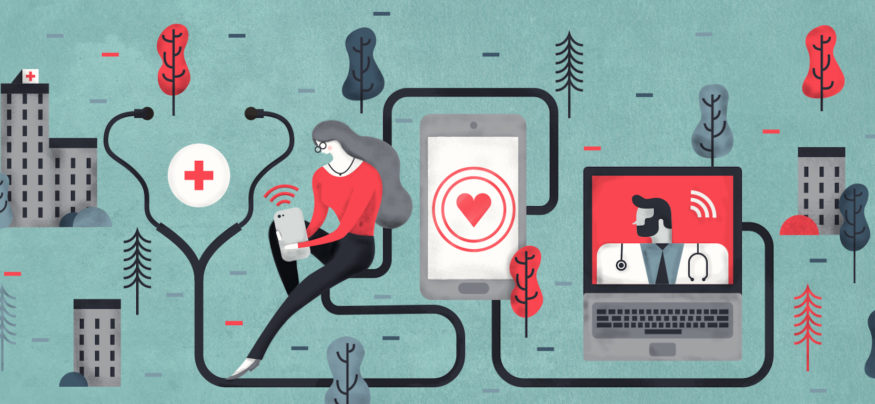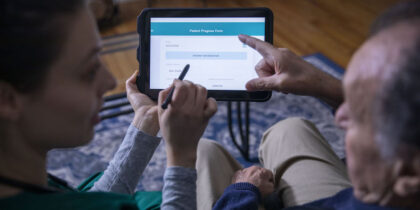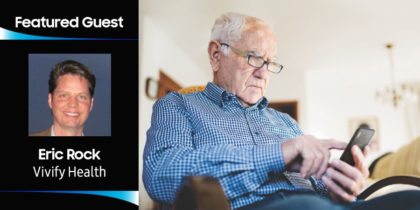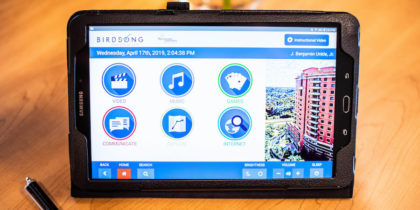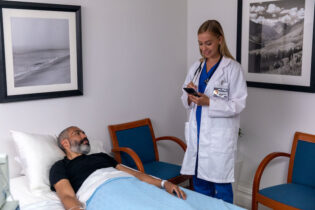Getting baby boomers excited about digital health technology is one thing — getting them to use it in ways that are actually effective is quite another, and might be more challenging than anyone in the industry realizes.
Today’s oldest generation isn’t like the ones that came before it — they’re active, connected, and in many ways leaders in technology use. When you consider that baby boomers didn’t grow up immersed in electronic technology the way many younger generations have, the fact that 77 percent of them find technology “not difficult at all,” or “not very difficult” to use is impressive.
With numbers like that, it isn’t surprising that baby boomers are incredibly comfortable with Facebook, Twitter, Skype and smartphones. What might be surprising, however, is that despite these numbers, they are slow to adopt healthcare technology.
A Rejection of Digital Health Tools
According to a study by David Levine, M.D., a researcher with the Division of General Internal Medicine and Primary Care at Boston’s Brigham and Women’s Hospital, Americans over age 65 exhibit a surprisingly low rate of use of internet tools for health purposes. For the study, Dr. Levine and his team of researchers looked at the following four categories to better understand how boomers were using the internet to meet their health needs:
- Filling prescriptions
- Contacting clinicians
- Addressing insurance matters
- Researching health conditions
The team found that only 16 percent of older adults used the internet to search for health information, and a meager 8 percent filled prescriptions online. The numbers for clinician contact and insurance management were even lower, at 7 and 5 percent, respectively. For a population in which 80 percent of its members have cell phones and 60 percent regularly use computers, those numbers don’t quite add up.
Dr. Levine states that the central issue affecting technology adoption could be related to a lack of usable tools for this generation. “We’re not able to say why from these numbers … We do postulate that there’s a real dearth of usable technology platforms right now for seniors who are not adept at using mobile and computer technology.” According to researchers, “future innovations should focus on usability, adherence and scalability to improve the reach and effectiveness of digital health for seniors.”
A Lesson From Social Media
Patient-centered care seems to be the answer to every healthcare problem these days, and the same is likely true here.
According to a Journal of Cyberpsychology study, there’s a link between the use of social technology and physical and psychological health — the frequent use of social technology is a solid predictor for lower levels of loneliness, and as a result, better physical and mental health. Essentially, participants who used social technology were found to be more satisfied with life, have fewer depressive symptoms and exhibit fewer chronic conditions such as high blood pressure and diabetes.
It’s not difficult to look at these patterns and understand what motivates boomers and older adults to engage with digital health technology. Much like younger generations, they’re most drawn to the technology that connects them with the people, places and activities that they care about.
Up until recently, much of digital health has focused predominantly on clinical results, with usability and engagement tossed in as afterthoughts. As this area of digital and mobile health progresses, we’re bound to see an increase in digital health solutions that inspire technology adoption among the older generation by connecting with their existing technology habits.
As more seniors turn to digital health options, they’re increasingly utilizing mobile devices to keep better track of their health and create a connected home.
